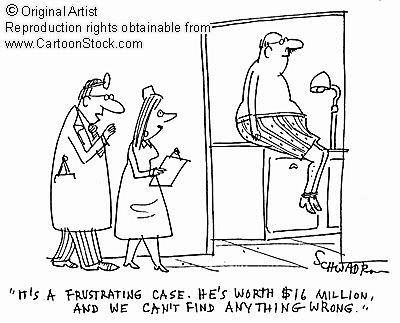RJM2096
New member
I apologize for sounding like or broken record or a one issue contributor, but last night Frontline on PBS did a hour show on medical care in five democracies. Watching this may shape your opinion. Here is a link that allows you to view the program.
http://www.pbs.org/wgbh/pages/frontline/sickaroundtheworld/?campaign=pbshomefeatures_2_frontlinebrsickaroundtheworld_2008-04-16

What amazes me is that we are such a powerful hard-working country, we spend over 16% of GDP on health care (which is more than double what other advanced countries spend), yet deny 25% of our population healthcare, have the highest infant mortality rates of these countries, and are generally unhappy with the system.
http://www.pbs.org/wgbh/pages/frontline/sickaroundtheworld/?campaign=pbshomefeatures_2_frontlinebrsickaroundtheworld_2008-04-16

What amazes me is that we are such a powerful hard-working country, we spend over 16% of GDP on health care (which is more than double what other advanced countries spend), yet deny 25% of our population healthcare, have the highest infant mortality rates of these countries, and are generally unhappy with the system.




 ) within a few hours. got a prescription and paid a few bucks. as someone who currently does not have health insurance, that level of protection is comforting, even if its not always as efficient as our "pay" system. what really depresses me is the idea that i could get in an accident with my bike, break an arm and be out thousands and thousands of dollars which will nag me for years. you can't go on living in a bubble just because insurance costs are so high (i do get on the new job's insurance next month, thank god).
) within a few hours. got a prescription and paid a few bucks. as someone who currently does not have health insurance, that level of protection is comforting, even if its not always as efficient as our "pay" system. what really depresses me is the idea that i could get in an accident with my bike, break an arm and be out thousands and thousands of dollars which will nag me for years. you can't go on living in a bubble just because insurance costs are so high (i do get on the new job's insurance next month, thank god).

